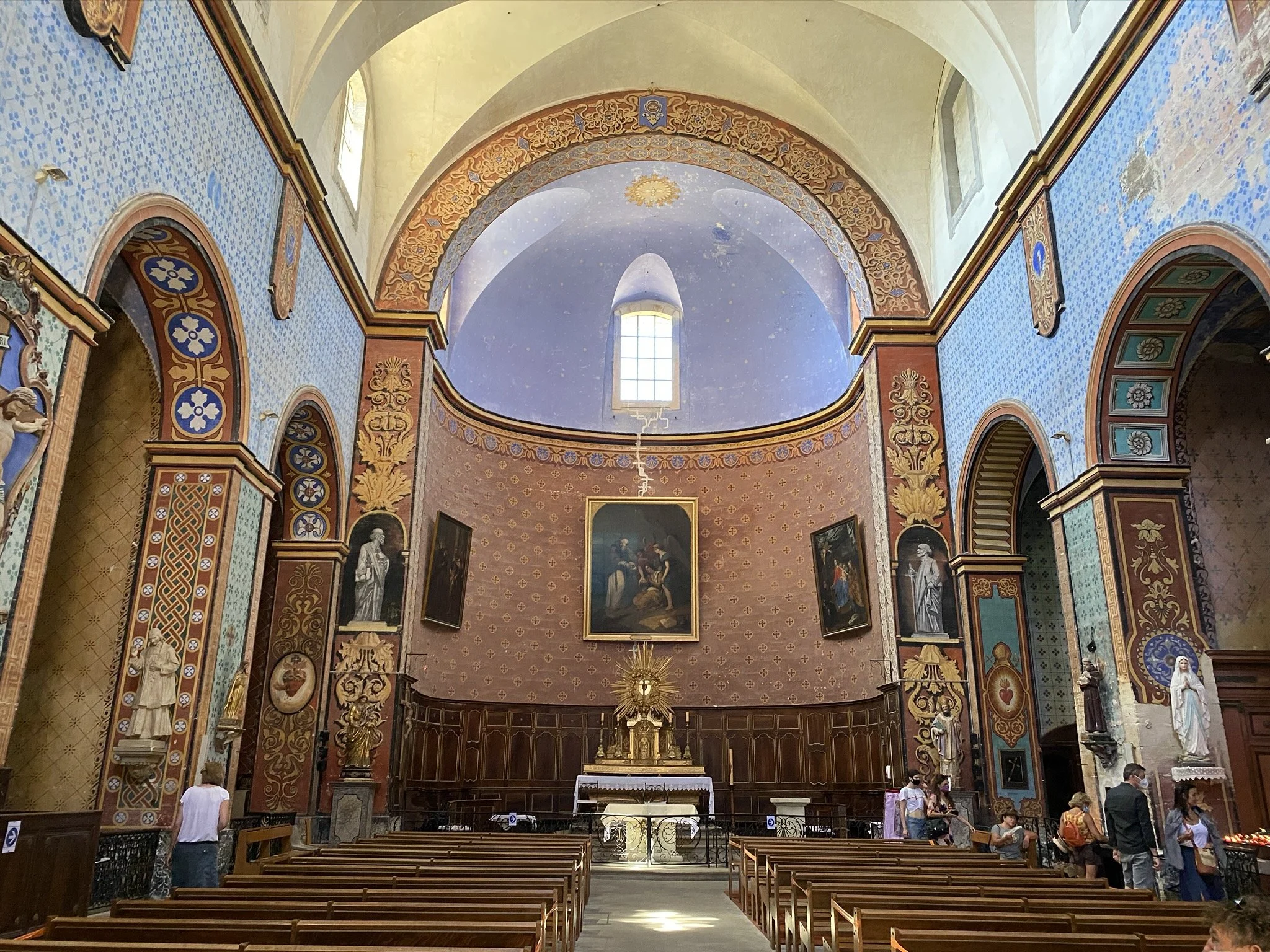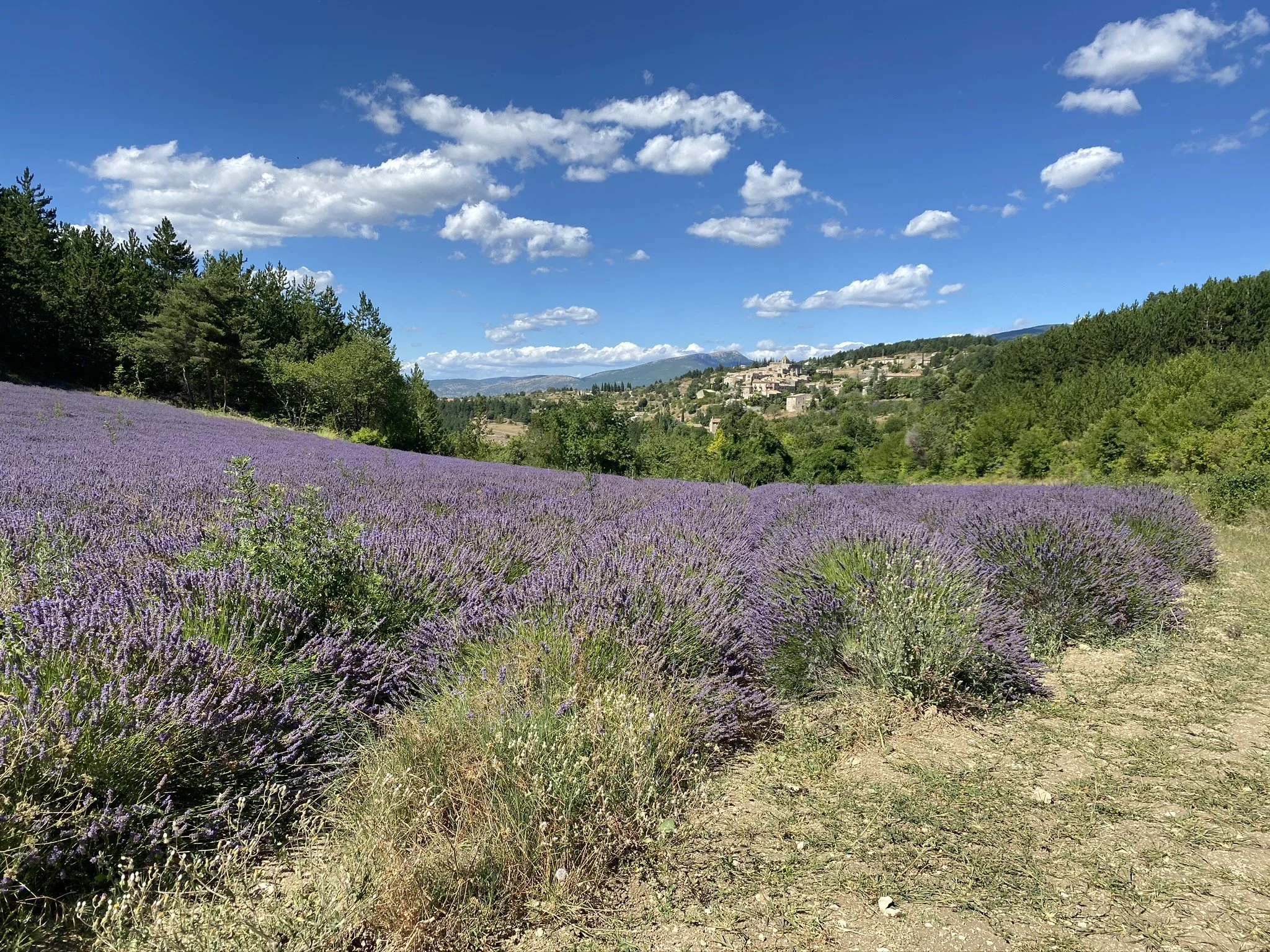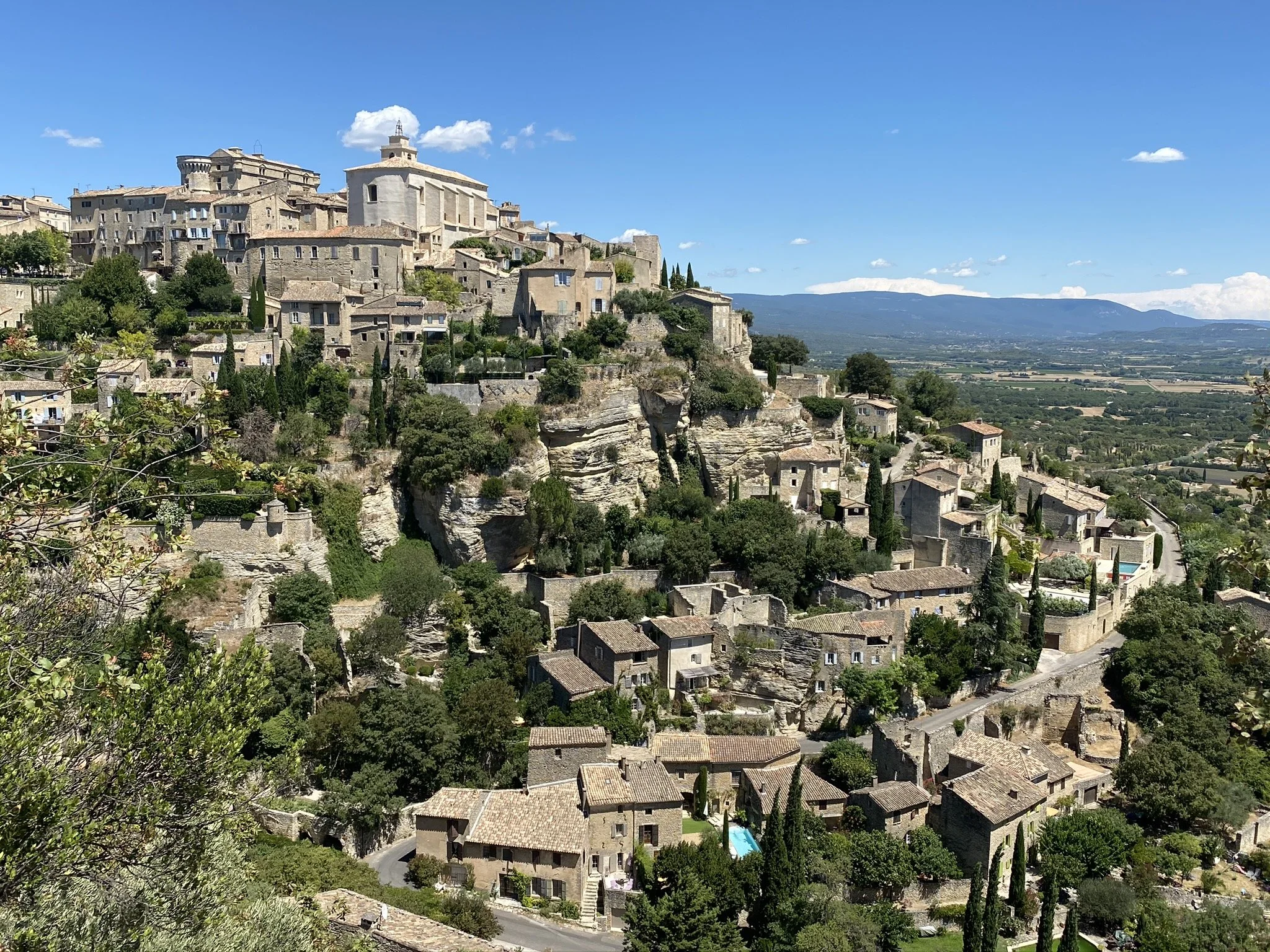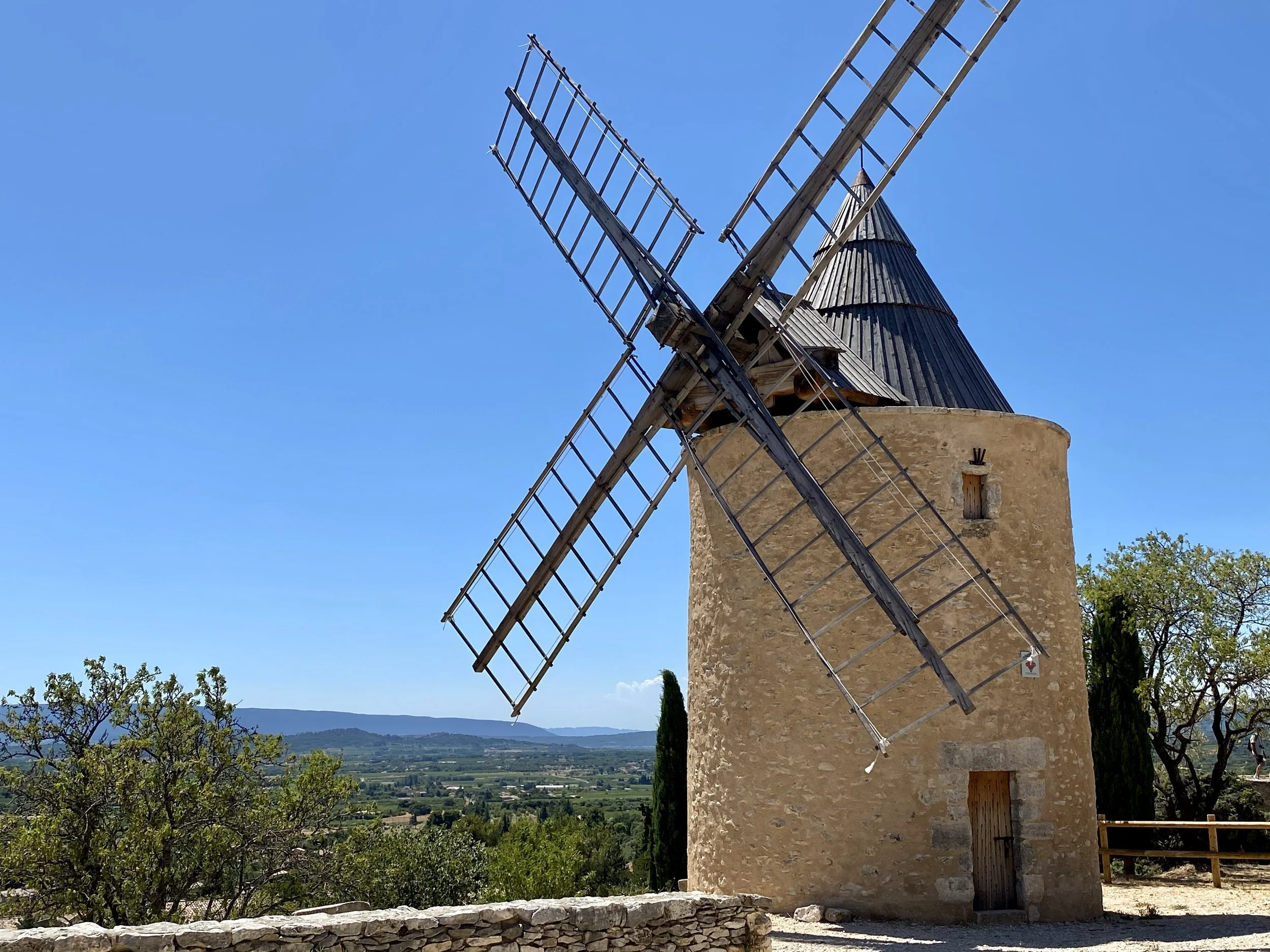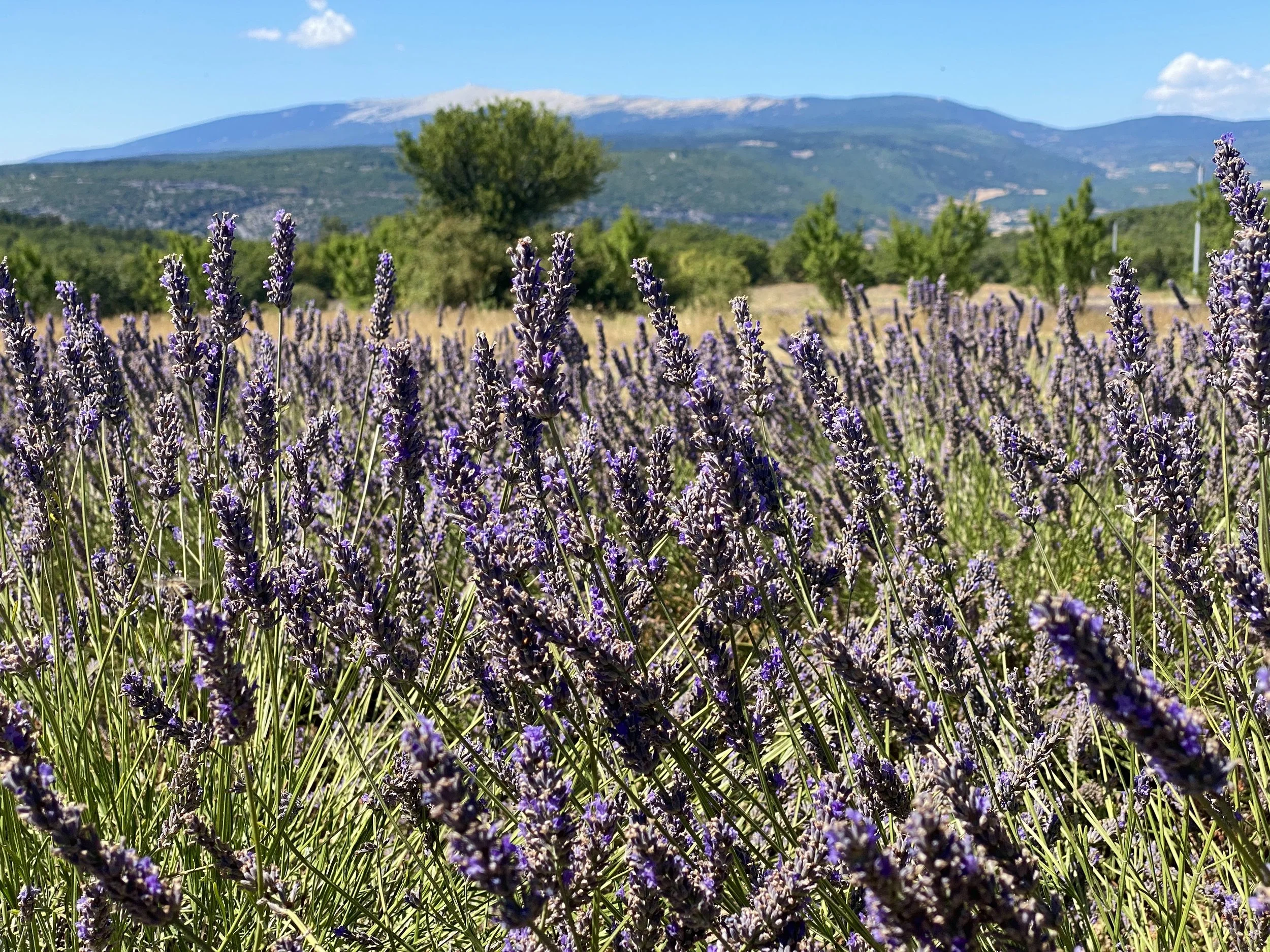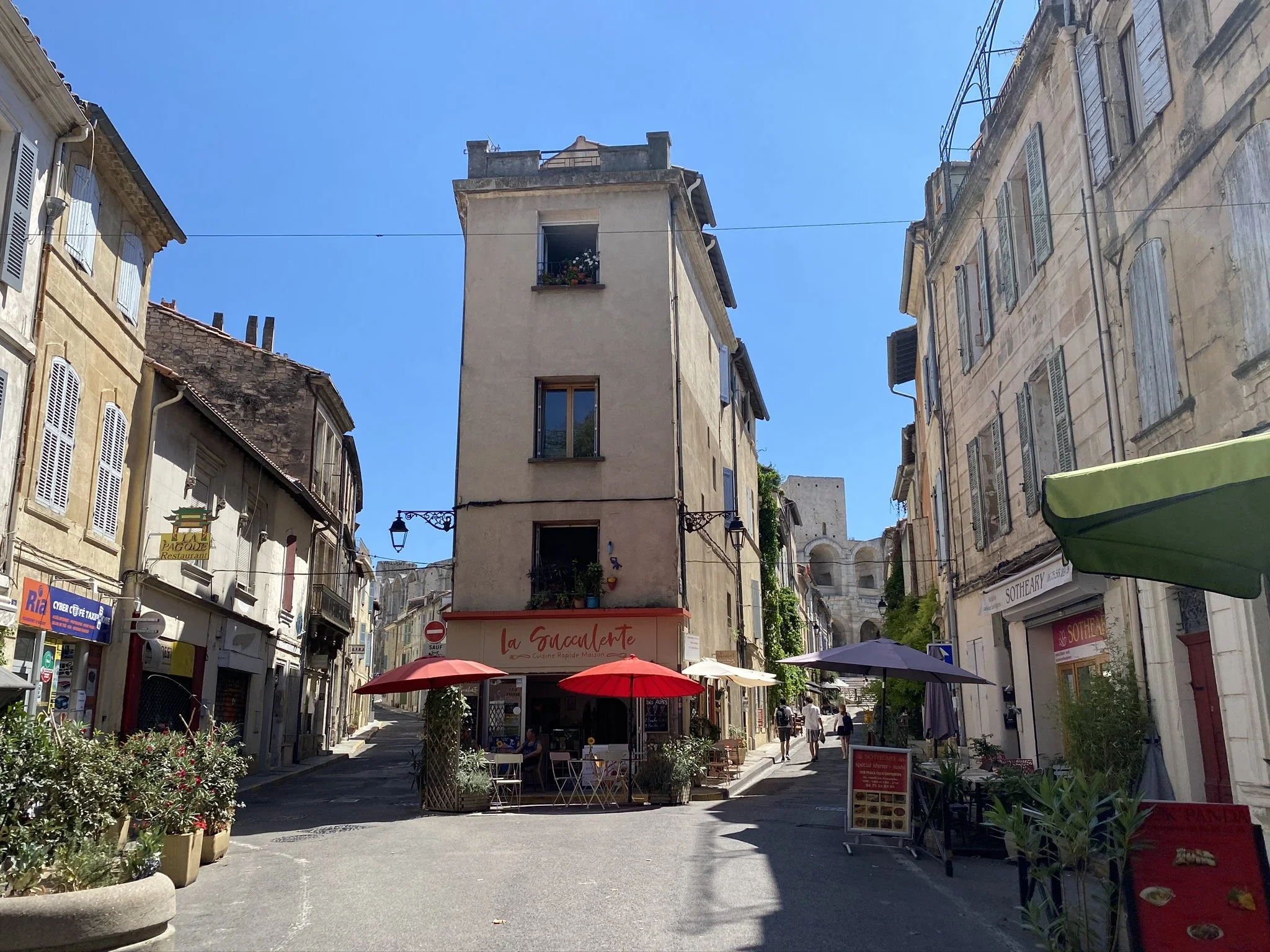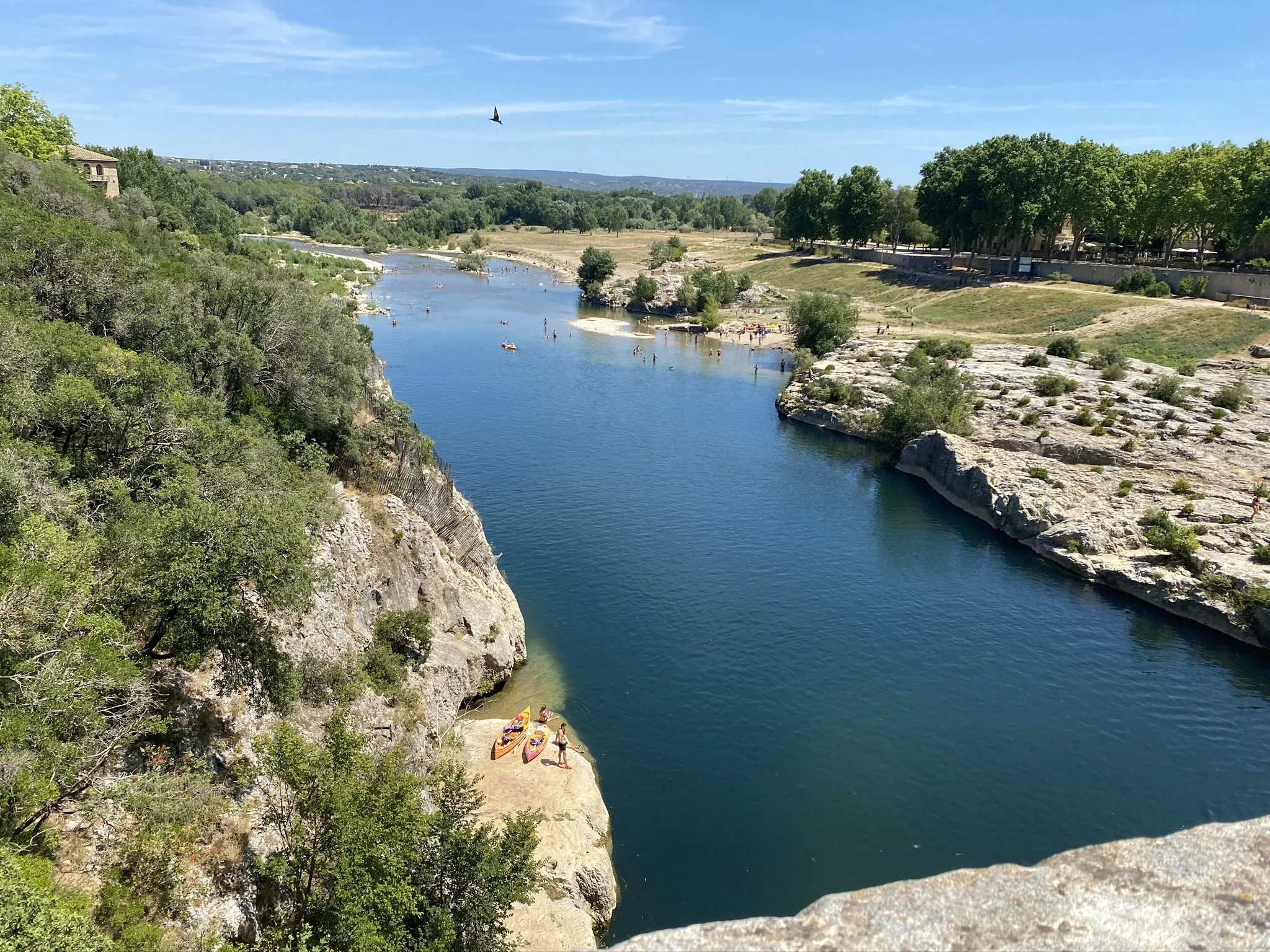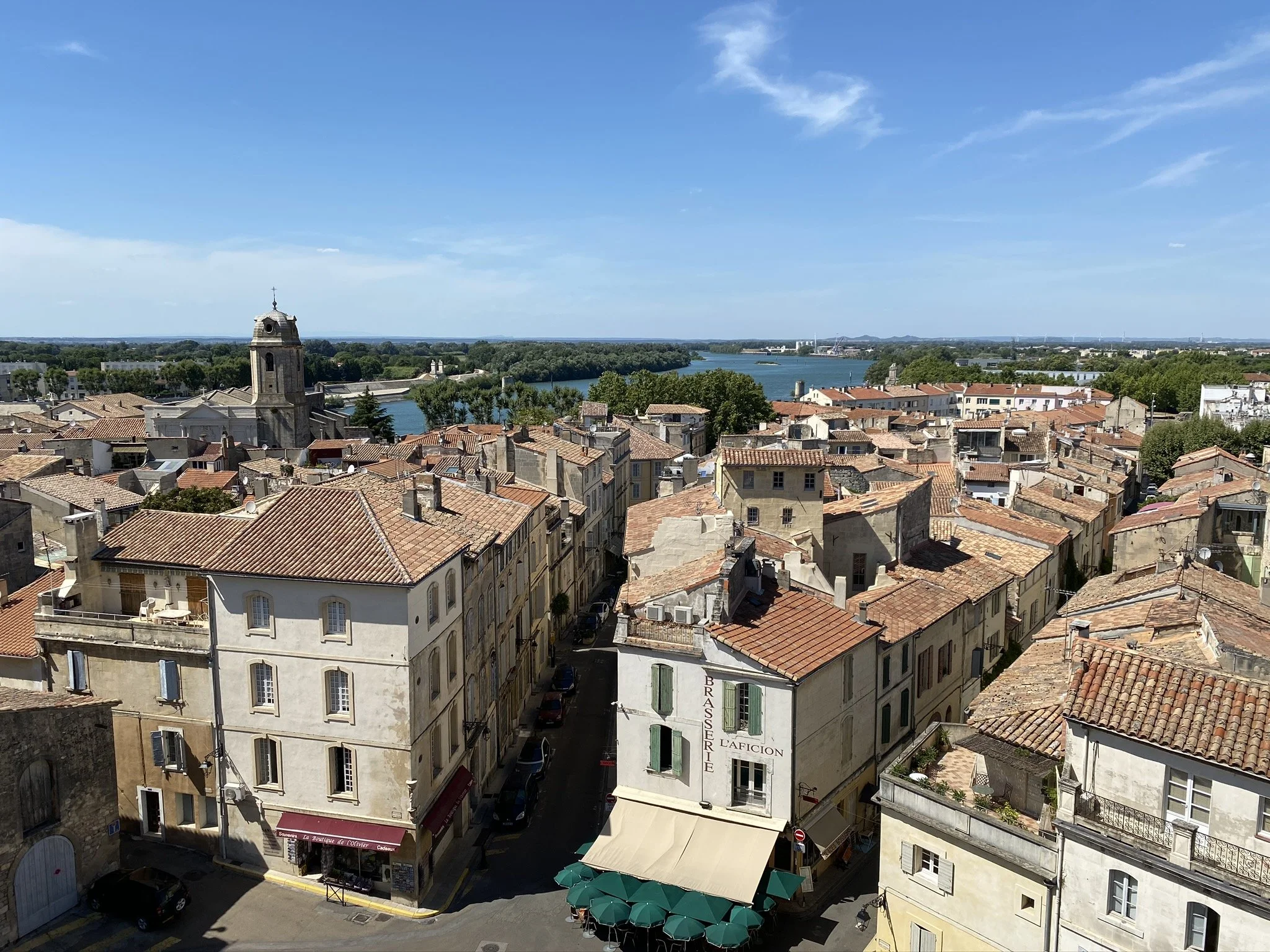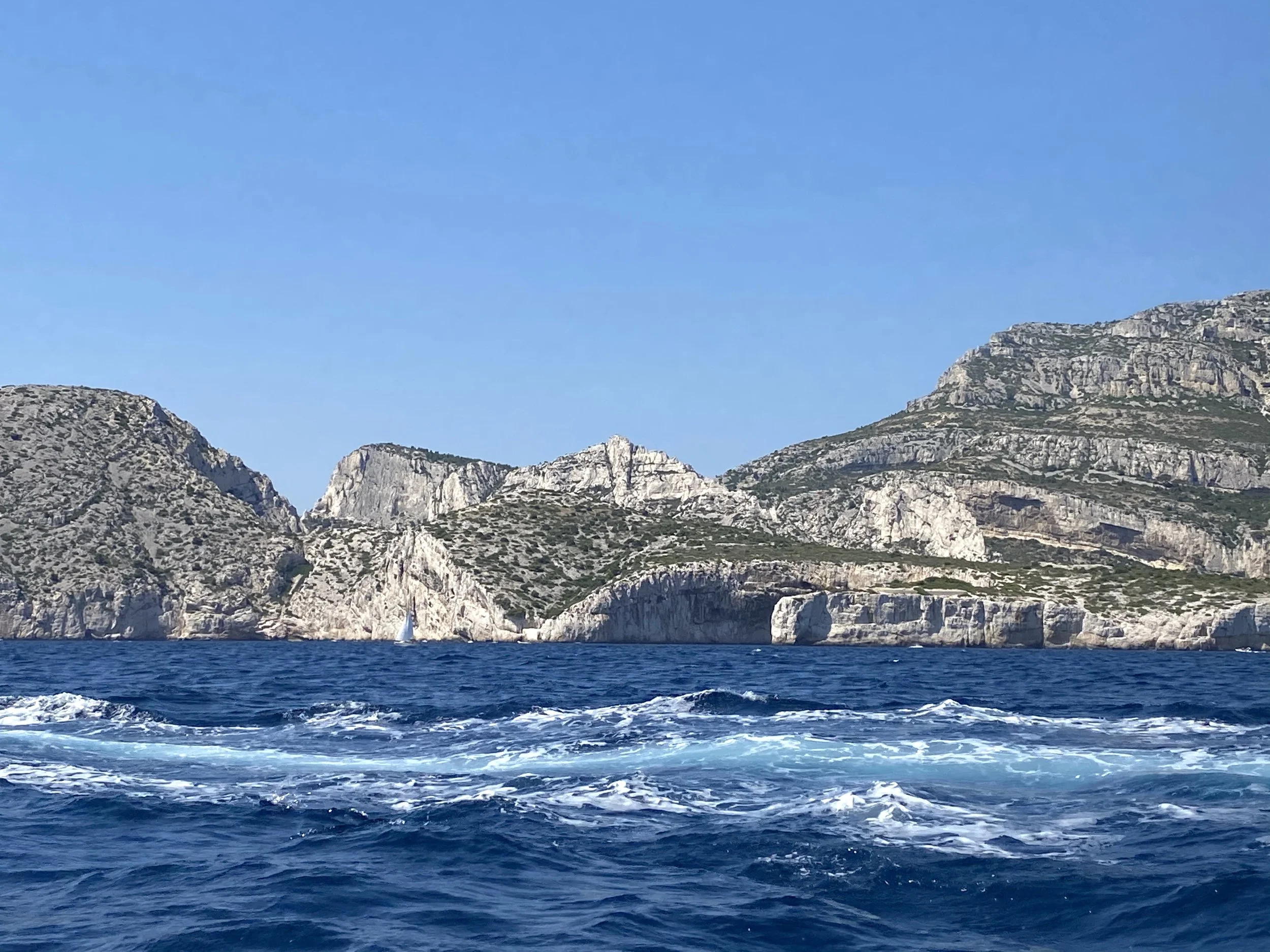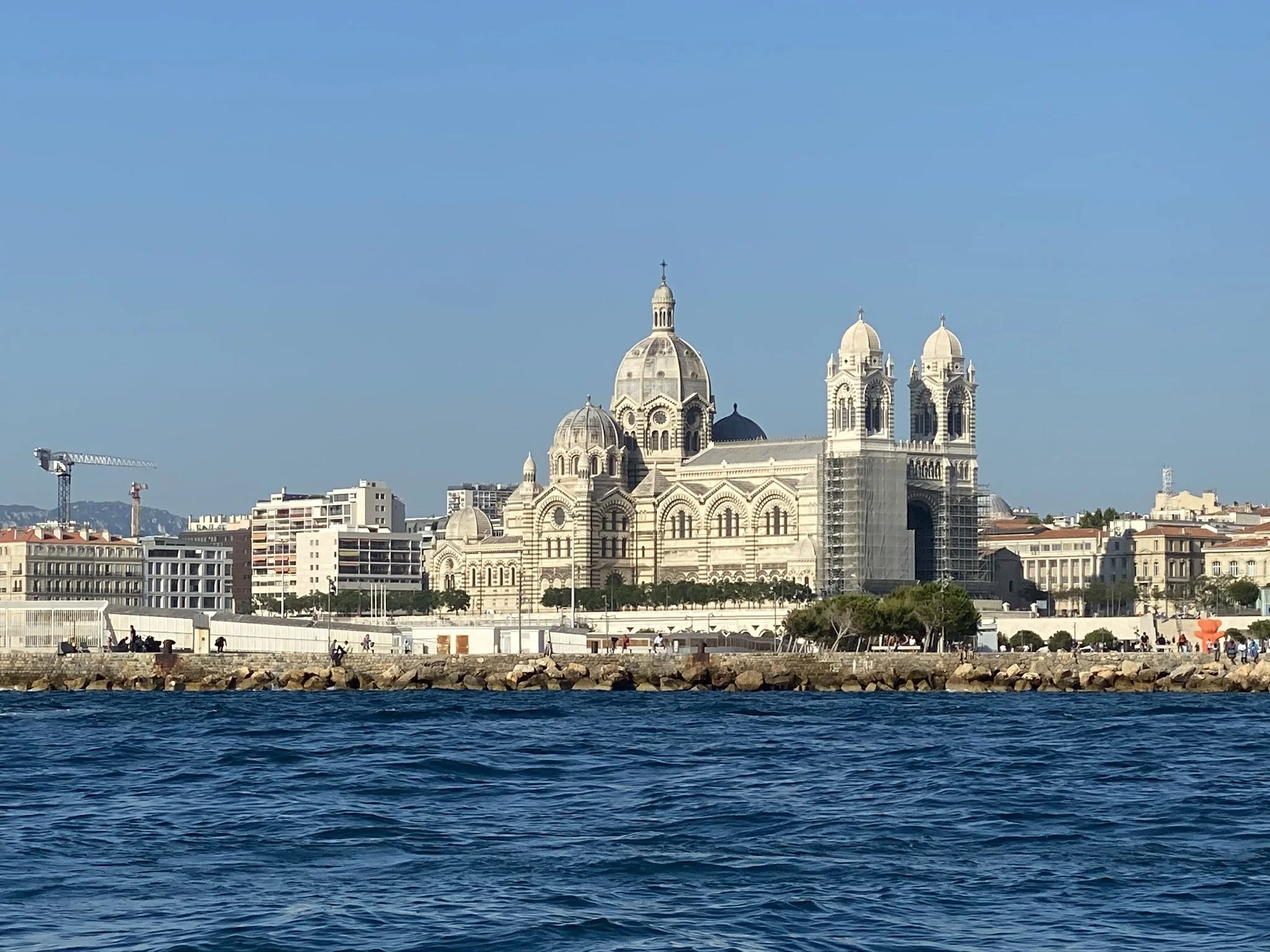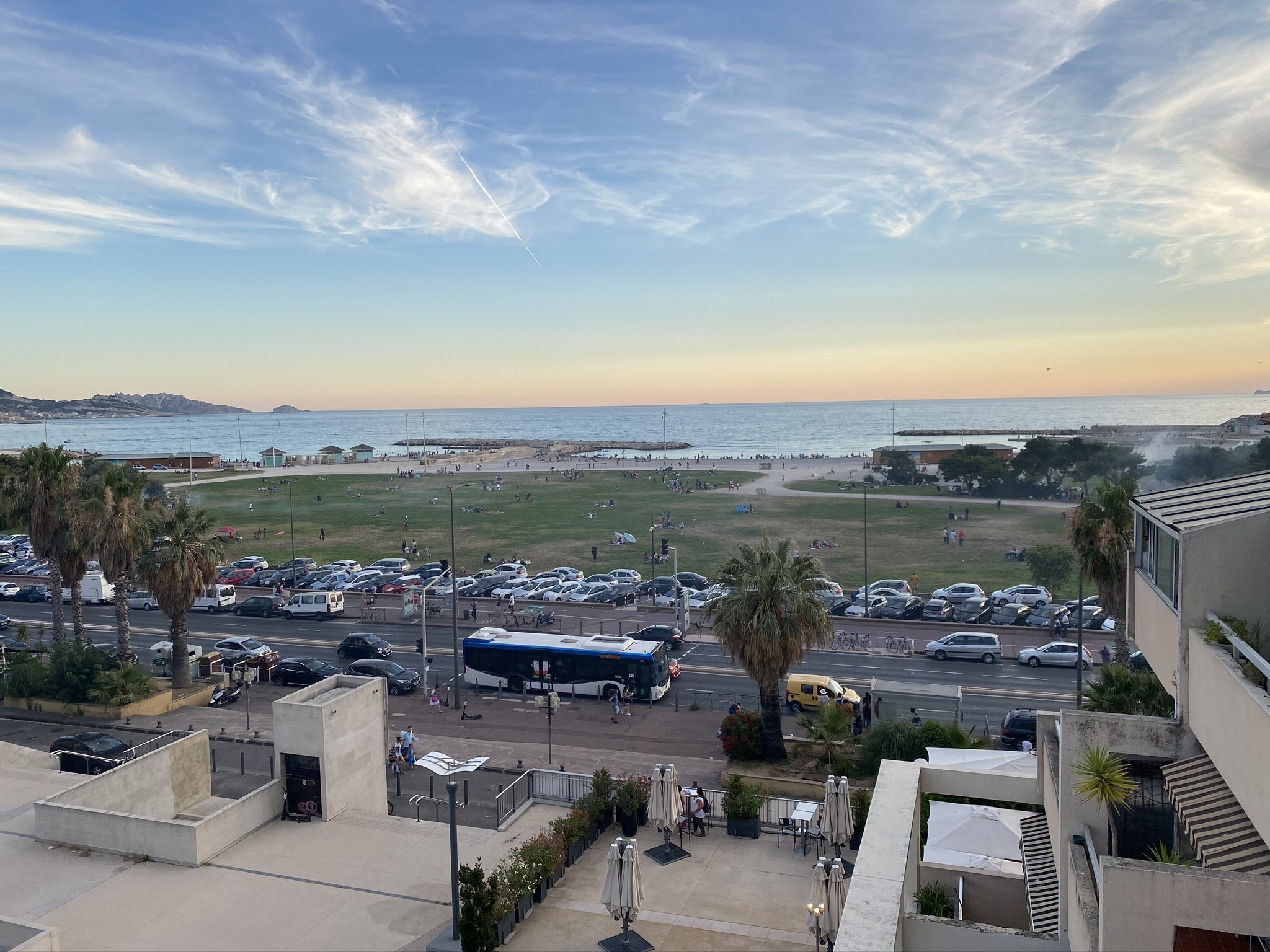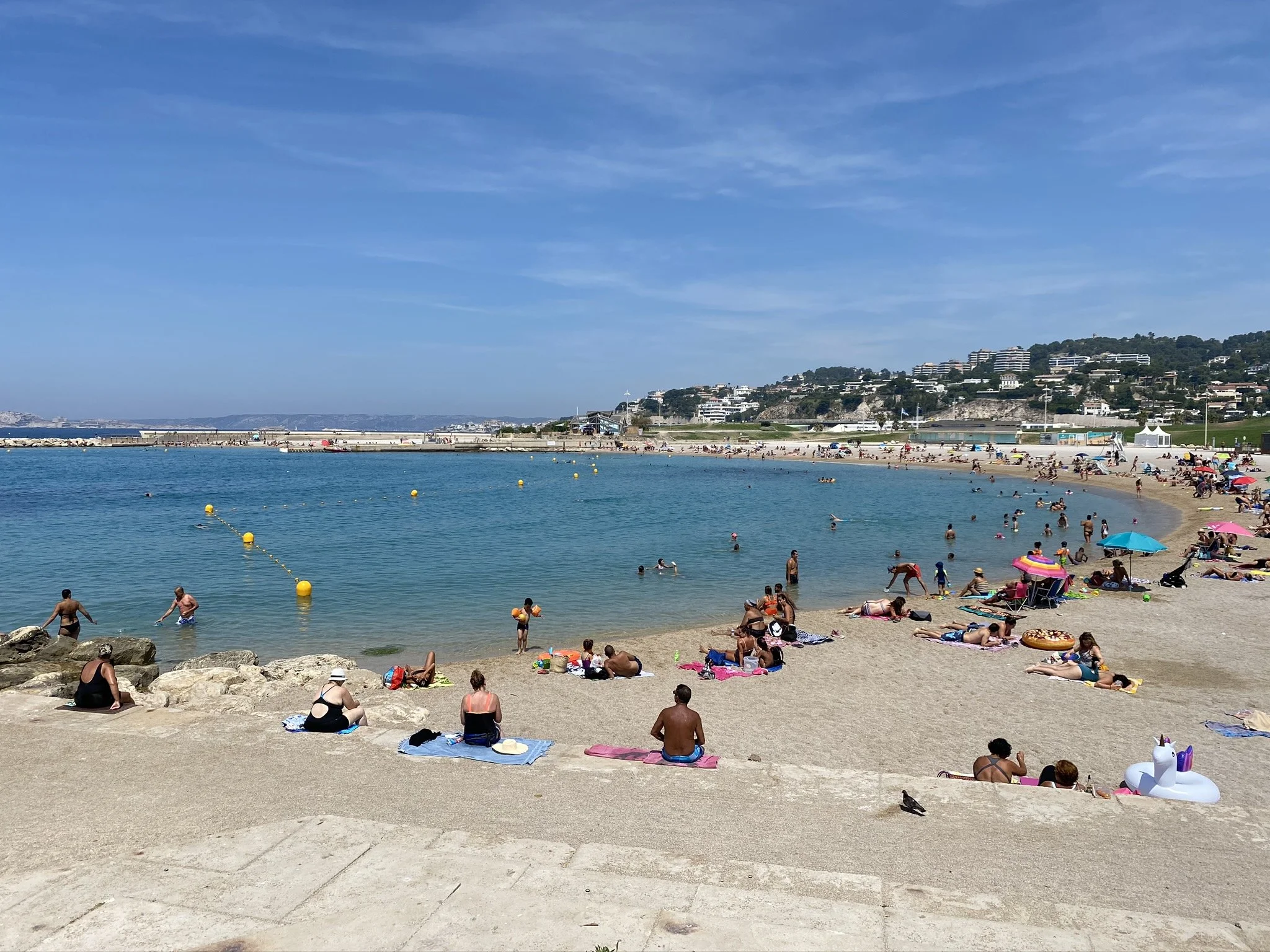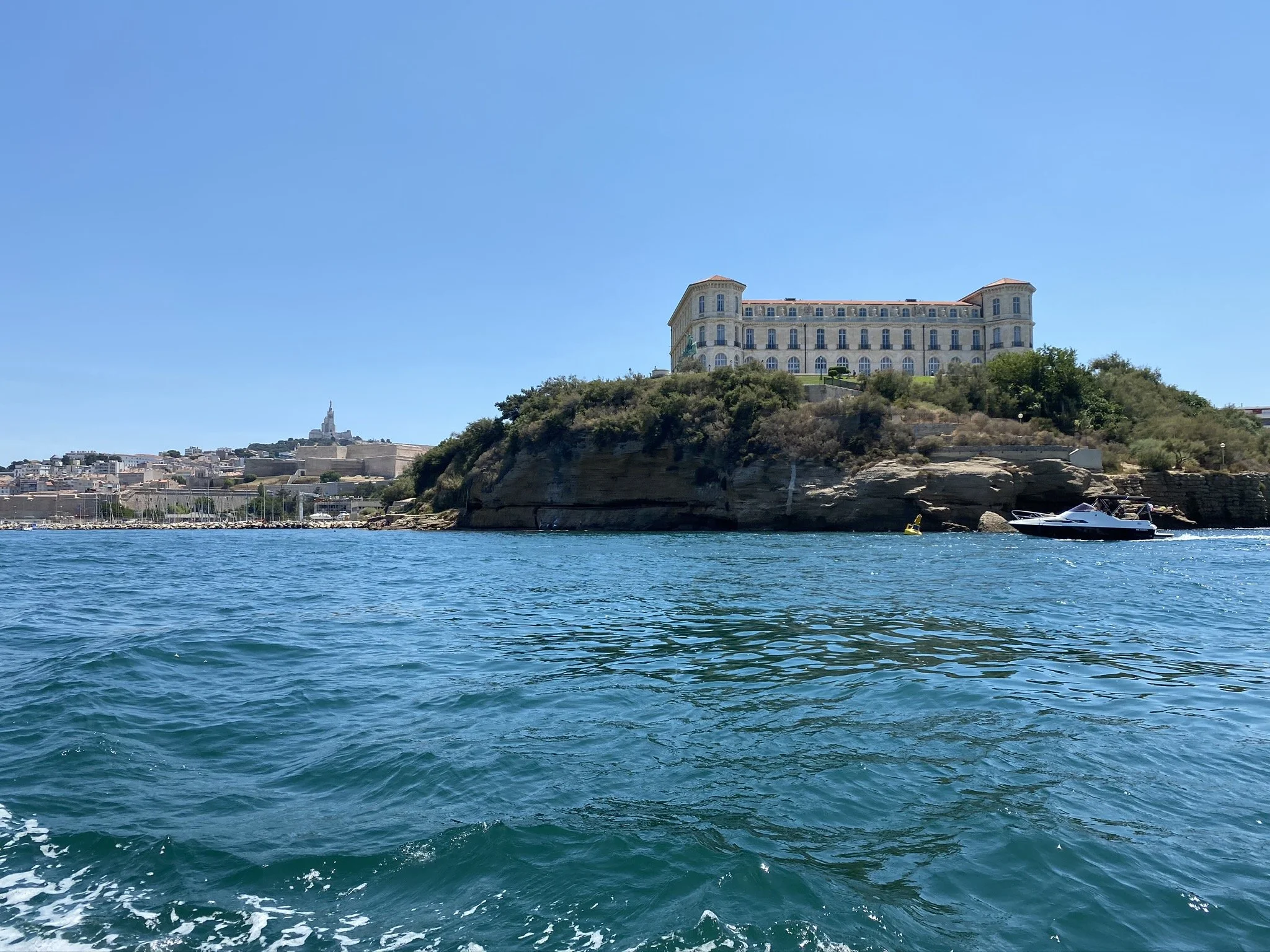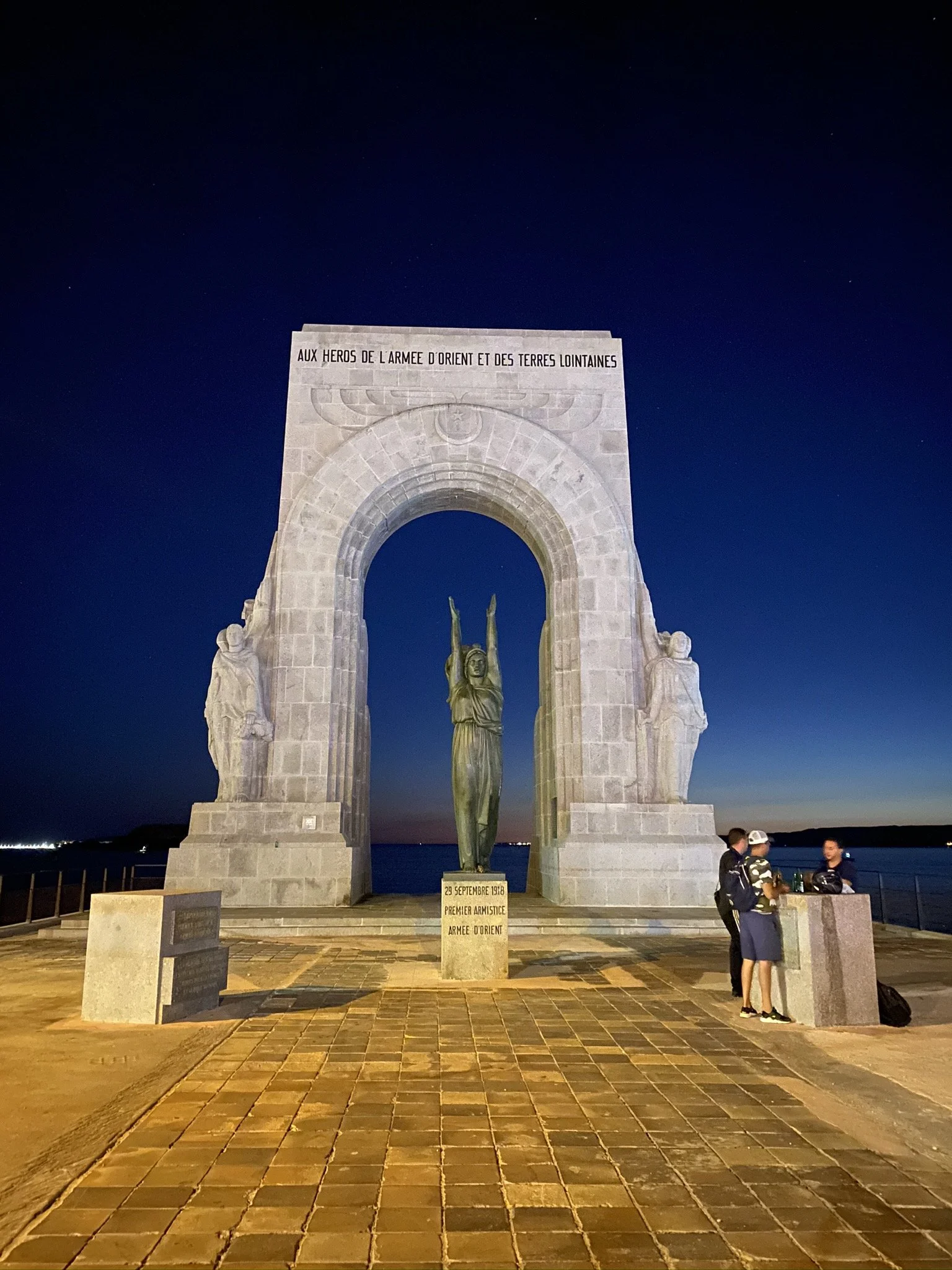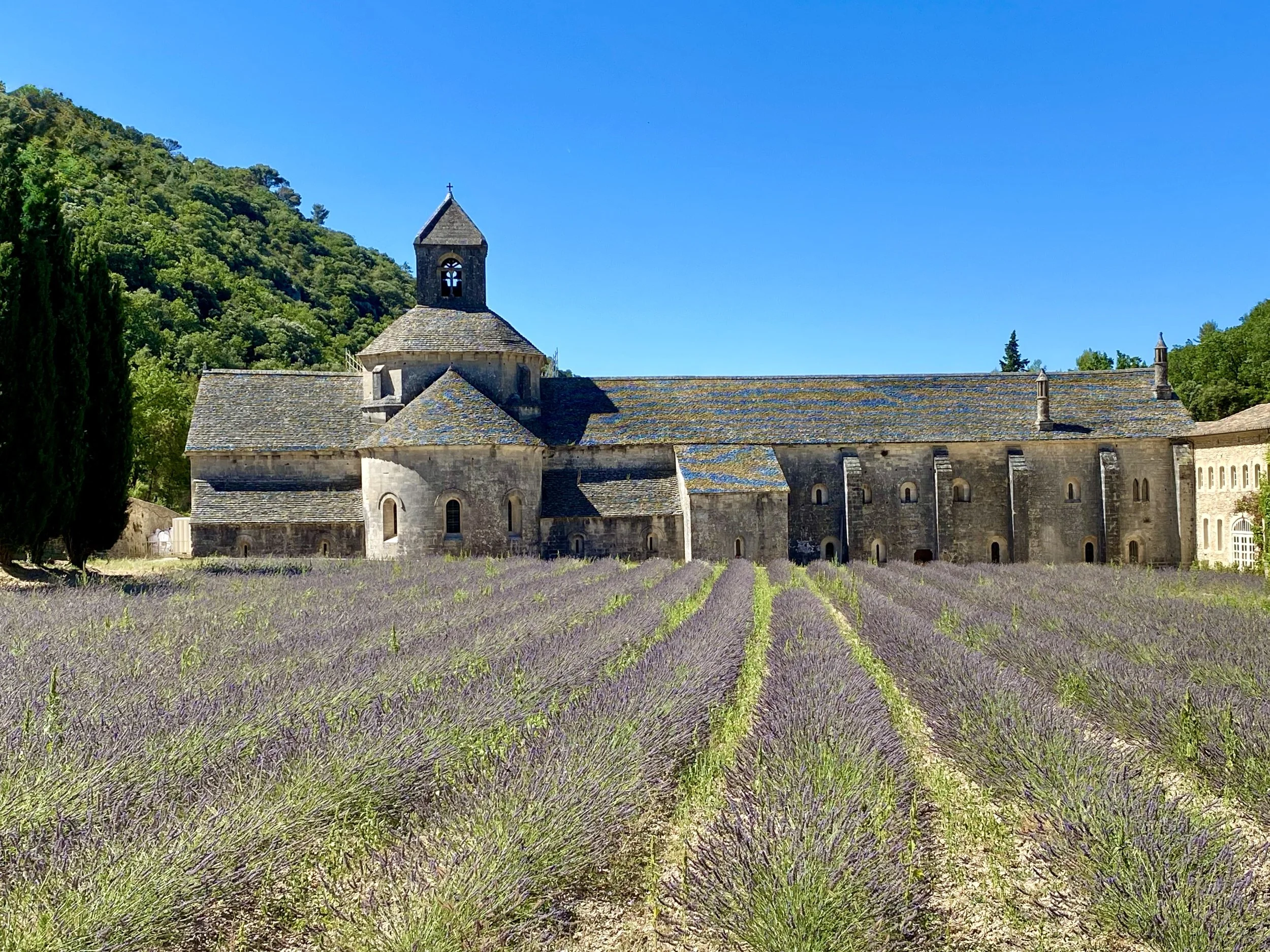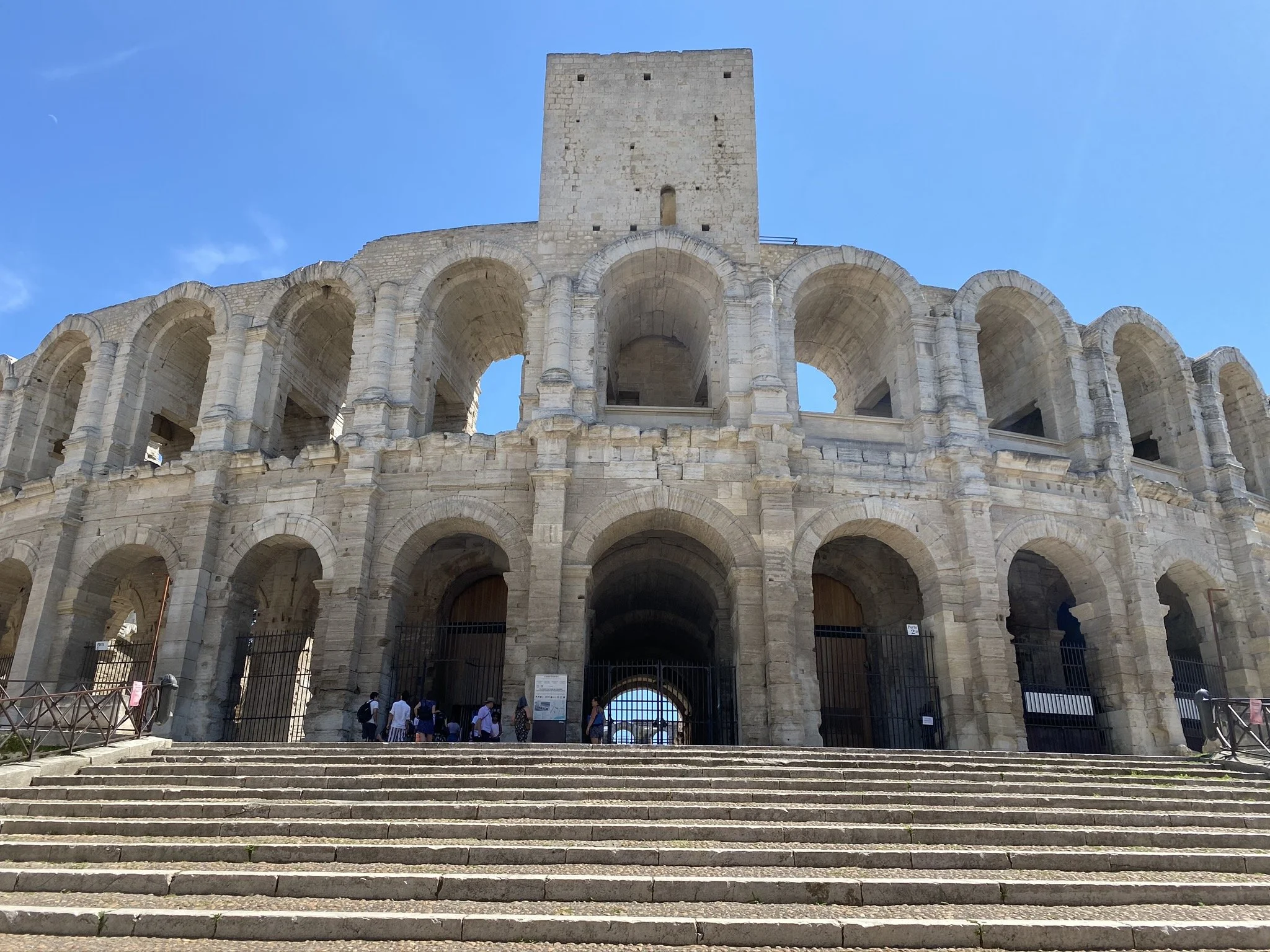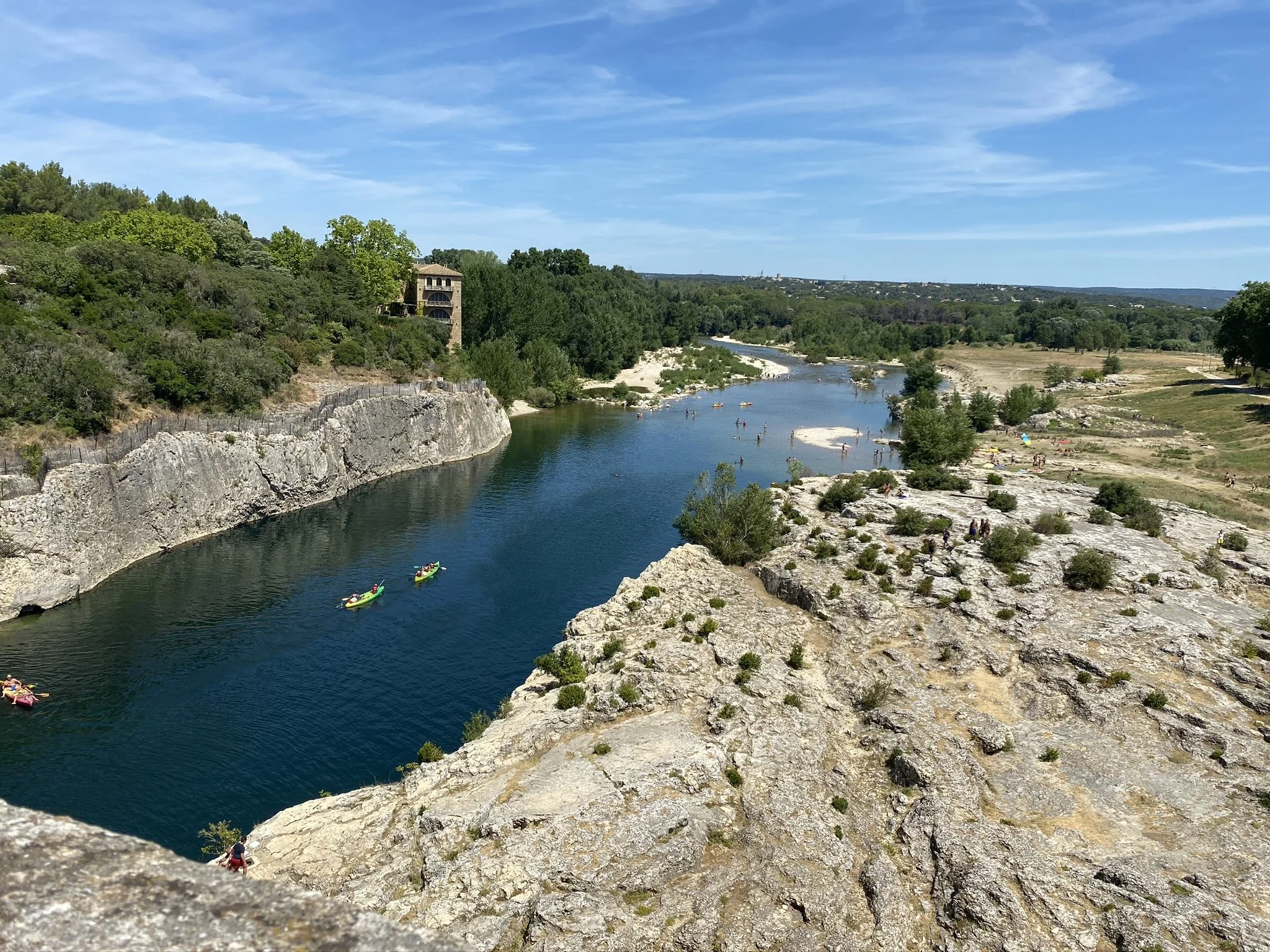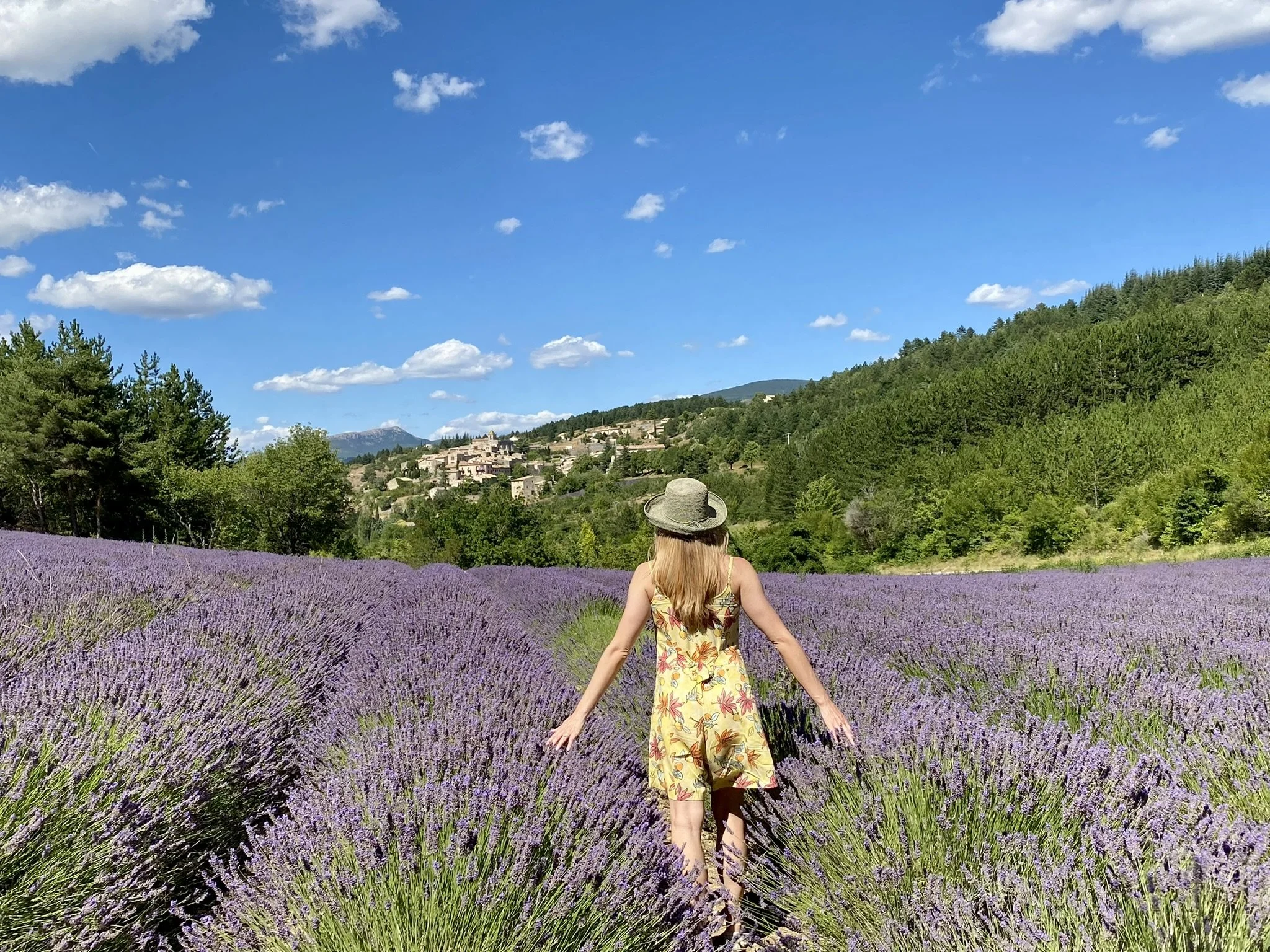The Ultimate French Lavender Road Trip: Roman Ruins, Lavender Fields & Storybook Towns
Lavender Fields near Sault
If you're dreaming of purple fields in bloom, golden sunsets, Roman aqueducts, and charming French villages, this French Lavender Road Trip through Southern France is your next unforgettable adventure. We started our Southern France road trip in Avignon and ended by the sea in Marseille and drove through beautiful medieval towns, waves of lavender fields, and beautiful beaches. This 5-day itinerary weaves together the best of Provence’s lavender fields, Roman history, and romantic hilltop towns.
Whether you're chasing peak lavender season or indulging in the region’s rosé, this route is perfect for first-time travelers visiting France, couples looking for a romantic getaway, and photographers alike. Here's how to plan a wonderful road trip through Provence.
At a Glance: 5-Day Provence Road Trip Itinerary
Day 1: Arrive in Avignon
Day 2: Lavender fields, Gordes, Sault, Aurel, and viewpoints galore
Day 3: Explore Avignon, Pont du Gard, Arles & the Camargue
Day 4: Marseille & boat day to Cassis
Day 5: Morning in Marseille, return back to Paris or where ever you started your road trip
Bonus options if you have more time: Orange, Vaison-la-Romaine, Aix-en-Provence, the Luberon villages
Best Time to Visit the Lavender Fields of Provence
Lavender Fields near Sarraud
Mid-June to mid-July is the best time to see lavender in full bloom. For fields near Sault and Valensole, try to arrive between July 1 and July 15 for peak purple. Harvest usually begins in mid-July, especially at lower altitudes.
Weather: Expect sunny days, 25–35°C (77–95°F)
Tips: Start early to beat the crowds and photograph the fields in soft morning light. We visited in late-July just past the peak of lavender season, but there were fewer crowds and some amazing lavender fields in full bloom. Consider going a week later than the peak if you want to try and avoid some of the crowds, while still seeing (most) of the lavender fields in full bloom or just past their peak .
Our More Detailed Itinerary:
Day 1: Arrival in Avignon – The Gateway to Provence
Arrive in Avignon, a walled medieval city that feels like stepping back in time. Settle in and wander the cobbled streets, enjoy an apéritif (or our personal favorite a glass of local rose) in Place Carnot, and savor a Provençal dinner in the old town.
Optional evening tip: Catch sunset views of the Pont Saint-Bénézet (“the famous bridge of Avignon”) and the Palais des Papes, once the seat of Catholic power in the 14th century.
Total Driving Time (from Frankfurt): 9 Hours (7 hours from Paris, 2.5 hours from Lyon)
Accommodation: We stayed at a local VRBO, but we would recommend staying at a local AirBnB or consider Hotel De Cambis Best Western or an apartment through booking.com
Day 2: Chasing Lavender & Hilltop Towns
This is the crown jewel of your trip. Set out from Avignon early and follow the scenic roads into the Luberon region. Note: If you want to catch the lavender fields with great light and fewer crowds, try to leave as early as possible.
Morning:
Abbaye Notre-Dame de Sénanque – One of the most photographed spots in France. Lavender blooms surround this 12th-century abbey.
Gordes – A postcard-perfect village perched on a cliff.
Visit Eglise Saint-Firmin, a small church built into the rock
Shop artisan boutiques and Provençal goods - this town has some of the best shopping in the region.
Take in panoramic views from the Gordes viewpoint
Enjoy a memorable lunch or dinner at La Trinquette, known for its terrace views and seasonal southern French cuisine
If you are interested in a Rosé tasting: Visit Domaine de la Citadelle winery in nearby Ménerbes for an elegant tasting experience with beautiful vineyard views
Afternoon:
Viewpoint at Saint-Saturnin-lès-Apt – Panoramic views from the windmills over valleys and lavender plains. This is a great pit stop!
Lavender Fields near Sarraud & Route de la Balate – Perfect for tranquil photos without the crowds. These were some of our favorite lavender fields to wander around and take pictures
Sault – A charming hill town overlooking endless lavender fields. Stock up on lavender oils and soaps!
If you have time check out the Église Notre-Dame-de-la-Tour, this historic church dates back to the 12th century.
Indulge in Local Delicacies at Nougat André Boyer, the oldest nougat shop in the region dating back to 1887.
Evening:
Fields outside Aurel (near Chemin du Ventouret) – Golden hour here is magic - bring your camera for some great lavender field photos!
Quick stops in Aurel and Ferrassières – go see the hanging lavender drying on wooden racks.
Return to Avignon by sunset.
Top 3 Things to Do This Day:
Photograph the lavender fields at Sénanque Abbey
Wander the hilltop village of Gordes
Discover hidden lavender spots near Aurel
Total Driving Time: 3.5 - 4 hours
Accommodation: We stayed at a local VRBO, but we would recommend staying at a local AirBnB or consider Hotel De Cambis Best Western or an apartment through booking.com
Day 3: Roman Ruins & Flamingos
Morning in Avignon:
Palais des Papes – Tour the massive Gothic palace that once housed popes.
Pont d’Avignon (Saint-Bénézet Bridge) – Check out this historic bridge and admire the views over the Rhône.
Place Carnot – Great for coffee and people-watching.
If you are looking for more to do in Avignon, check out our 48 hour guide to Avignon .
Midday:
Pont du Gard – A Roman aqueduct and engineering marvel! Swim beneath it, explore the museum, and soak in the history. This was one of our favorite stops. Sitting in the water while staring at the Roman aqueduct was such a surreal moment. Take some time wander around the aqueduct, take a nice swim, and then dry off and check out the fantastic museum to learn all about the Roman history in the region. This is a must do if you like Roman history.
Afternoon:
Arles – This was one of the coolest villages! The Roman history runs deep and is well preserved. Step into Roman times with the Amphitheater, Theatre Antique, and local markets surrounding the roman ruins. The amphitheater is well preserved and we even caught a short gladiator show while touring around. We highly recommend visiting this town, especially if you are interested in Roman history and historic buildings.
Parc Ornithologique de Pont de Gau – Spot wild flamingos and walk through scenic marshlands in the Camargue. We saw hundreds of flamingos and wildlife in the preserve. The marsh walk is a great place to escape the lavender field crowds from the past couple of days and take in beautiful serene marshland and observe some wildlife!
Evening:
Arrive in Marseille, check into your hotel, and grab dinner and relax by the port.
Total Driving Time: 3.5 hours
Accommodation: We stayed at a local VRBO, right by the plage du Prado, but we would recommend staying at a local AirBnB or consider Mercure Marseille Canebière Vieux-Port or apartment through booking.
Day 4: Take in the Beaches in Marseille + Boat Trip to Cassis
Spend the day soaking in Mediterranean vibes.
Morning:
Relax on a beach near Plage du Prophète or Plage des Catalans.
Visit Basilique Notre-Dame de la Garde for panoramic city views.
Afternoon:
Boat trip to Cassis & Calanques National Park – Swim in turquoise waters and marvel at the limestone cliffs.
Evening:
Return to Marseille for dinner on the Old Port (Vieux-Port).
Stroll by the Cathédrale de la Major and the Fort Saint-Jean.
If you are looking for more detailed information on Marseille, check out how to spend 36 hours in Marseille.
Day 5: Morning in Marseille & Return
Enjoy one last croissant by the sea before hitting the road back to home or where you started your journey (for us that was from Frankfurt). Alternatively, extend your trip with stops in Orange, Vaison-la-Romaine, or more Luberon villages. If you have even more time, head further east along the coast to visit the beautiful French Riviera and Nice!
If You Have More Time...
Add These to Your Route:
Orange – Home to one of the best-preserved Roman theaters in Europe.
Vaison-la-Romaine – A perfect blend of Roman ruins and medieval streets.
Luberon Villages – Roussillon, Bonnieux, and Lacoste are incredibly scenic and romantic.
The iconic French Riviera (if you have at least 3 more days)
Best Lavender Fields in Provence (Google Maps Friendly!)
Sénanque Abbey (near Gordes)
Plateau de Sault – Less crowded, with mountain views
Route de la Balate (near Saint-Jean-de-Sault)
Fields near Aurel and Ferrassières – Quieter and just as stunning
Valensole Plateau (if you're detouring east)
Abbaye Notre-Dame de Sénanque
Roman History in Provence: A Quick Overview
Provence is a region where Roman history comes alive. Once part of the Roman province of Gallia Narbonensis, it served as a key trading route and military outpost. Today, visitors can explore remarkably well-preserved sites like the towering Pont du Gard, an aqueduct that still spans the Gardon River, and the majestic Amphitheater of Arles, which once hosted gladiatorial contests and now stages concerts and events. The ancient city of Orange boasts one of the best-preserved Roman theaters in Europe, while Vaison-la-Romaine reveals intricate mosaics and villa ruins that hint at the opulent lifestyles of its past inhabitants. Wandering these ruins, it’s easy to imagine the bustling marketplaces, grand processions, and thriving communities that once flourished here under Roman rule. Provence is not just lavender fields and medieval villages—it's a living museum of ancient Roman life.
Arles Amphitheater
Tips for Road Tripping Through France
Tolls: Expect tolls on major highways (autoroutes). Bring a credit card or cash.
Navigation: Use Google Maps or Waze, but be aware of mountain roads near hilltop towns. Download offline maps (some fields have poor signal).
Driving: Roads are well-maintained. Automatic cars can be rare—book early if you need one. Drive slowly — expect narrow, winding village roads.
Parking: Park outside historic centers; most towns have restricted lots.
Local markets: Check village market days for the best local experience!
Before You Go: Tips, Essentials & Must-Knows
Make the most of your Provence lavender road trip with these practical travel tips:
Timing Your Trip
Best lavender bloom: July 1–15 (peak season).
Weekdays = fewer crowds at top sights like Gordes & Sénanque Abbey.
Sunrise and early morning = best for photography and cooler temps.
What to Pack
Light, breathable clothing
Sun hat, sunscreen, & refillable water bottle
Swimsuit (Matt is a huge fan of Chubbies swimsuits!)& towel (for Pont du Gard and Marseille beaches - we highly recommend Sand Cloud!)
Comfortable walking shoes or a really comfy set of sandals or flip-flops
Bring a water-proof drybag if you are planning on heading to the beaches or to Pont-du-Gard
Travel Backpack for your carry-on. Ash got this specific one for her birthday and it fits so many things. It also comes with additional bags that are great for fitting shoes, laundry, etc.
We love our Samsonite luggage. We’ve had so many issues with fabric bags ripping or snagging over the years that we switched to the hard cover bags and have had no issues!
Luggage scale - great right before the airport to ensure your bag isn’t overweight but also for the way back once you stuff those extra purchases in your bag!
Packing Cubes - We don’t go on any trip without these. It helps divide out items by function and rolling and stashing items in these cubes allows for more room in your back for souvenirs.
Pont du Gard
Travel Smart
Book accommodations in advance — lavender season is busy!
Check local market days if you want authentic village experiences.
Try local rosé at a winery — it’s a regional favorite.
Expect traffic and crowds during peak lavender bloom - slow down and enjoy the amazing scenery.
Roads can be NARROW - we recommend booking a compact car to get around the tight towns
Don’t enter or pick from lavender fields unless permitted.
Language & Etiquette
Learn a few French phrases (bonjour (hello), merci (thank you), s’il vous plaît (please)).
Most restaurants close mid-afternoon and reopen after 7 p.m.
Be respectful, especially in quiet medieval towns.
Final Thoughts
This lavender road trip through Southern France is the perfect blend of natural beauty, ancient history, and slow, romantic travel. This was one of our absolute favorite road trips through France. This trip provides so much into 5 days, with beaches, history (especially Roman and Papal history!), and of course those Instagram worthy lavender fields. Whether you're stopping for flamingos or sipping wine at sunset, the spirit of Provence will stay with you long after your return.
Lavender Fields near Sault
Disclosure: This post contains affiliate links, which means we may earn a small commission (at no cost to you) if you book or purchase through our links. We only recommend things we’ve personally used and loved. Thanks for supporting our blog!
✨ Ready to plan your own French Lavender escape?
Check prices for hotels in Provence or browse tours in Provence to get started!






